Glazed Gammon
Glazed Gammon, with its glossy, sweet yet tangy exterior and tender meat within, is a real showstopper. But it’s surprisingly easy to make at home and good to eat hot or cold.
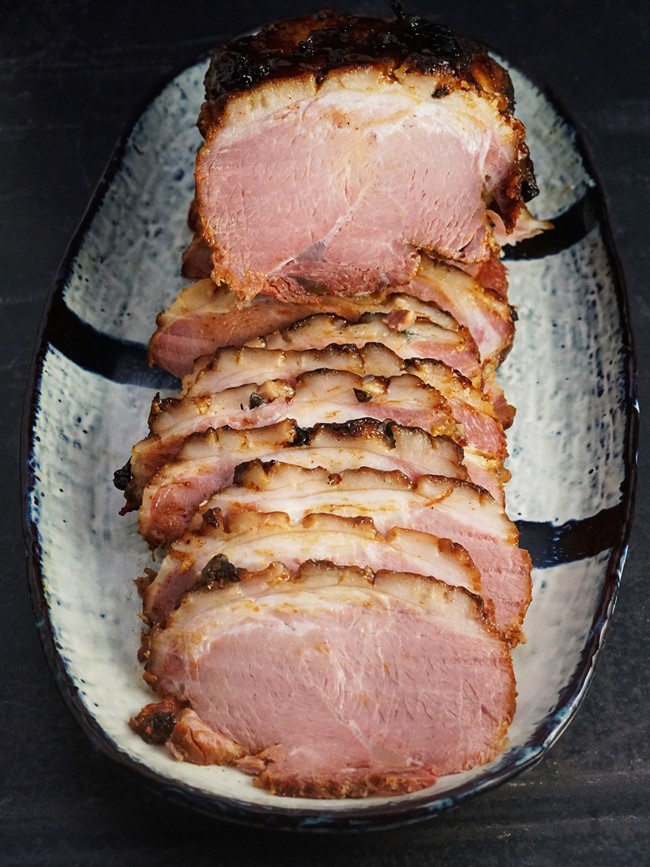
The gammon joint is first cooked by gentle simmering and then the skin discarded.
Next, a sticky sweet and sour mix of honey and mustard is brushed over and the gammon roasted for around thirty minutes.
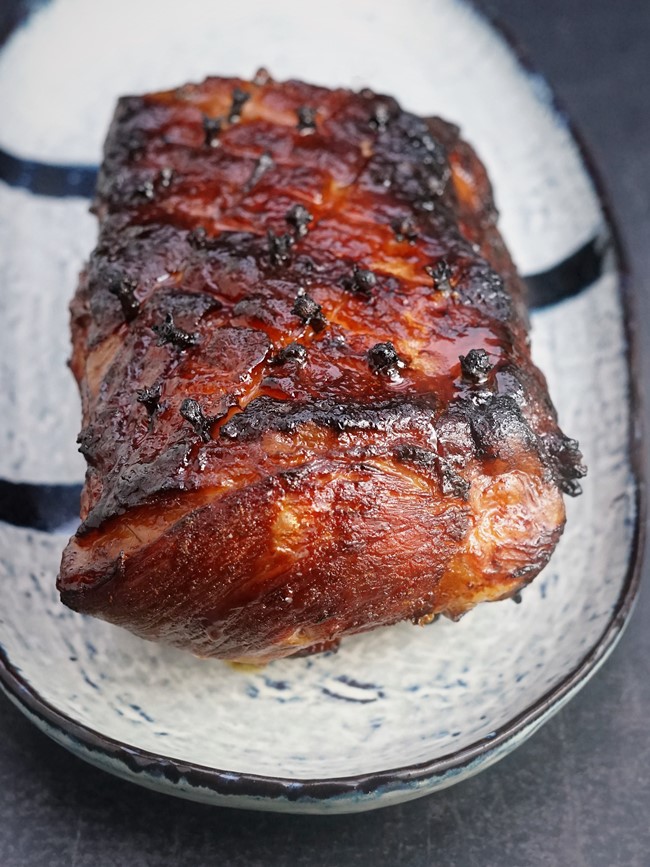
The result is a beautiful, shiny crusted ham that will wow your guests.
To eat hot, simply slice and serve. Or allow to cool then slice and serve as part of a buffet selection, with cheese, salads, or in sandwiches.
Jump to Recipe
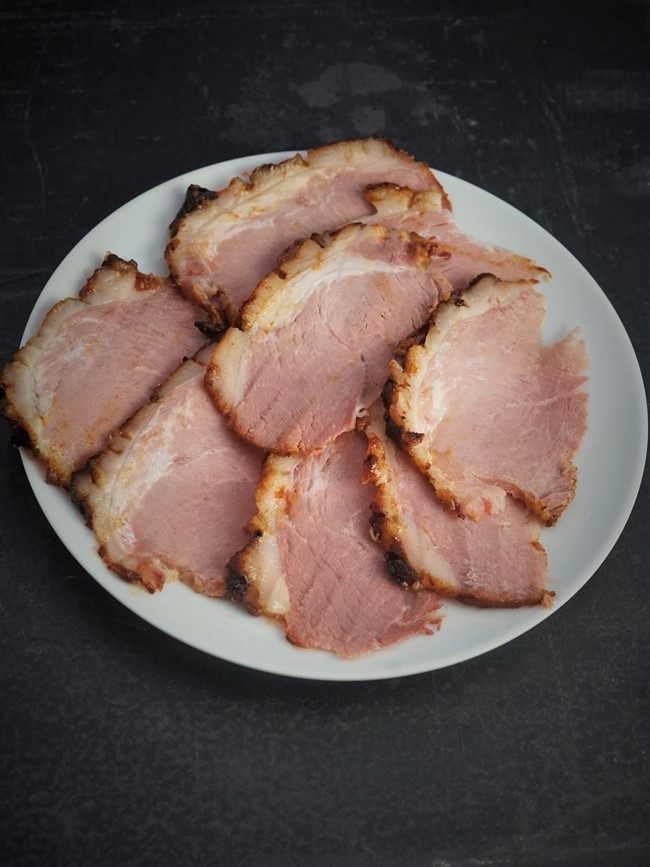
It’s not surprising that Glazed Gammon is traditionally eaten during the feast of Christmas.
Always impressive looking with its shiny, deeply caramelized, crusty exterior, its salty savoury flavour is tempered by the sweet and sour glaze.
Once cooked, the gammon technically becomes ham and is perfect for slicing and eating over the holiday.
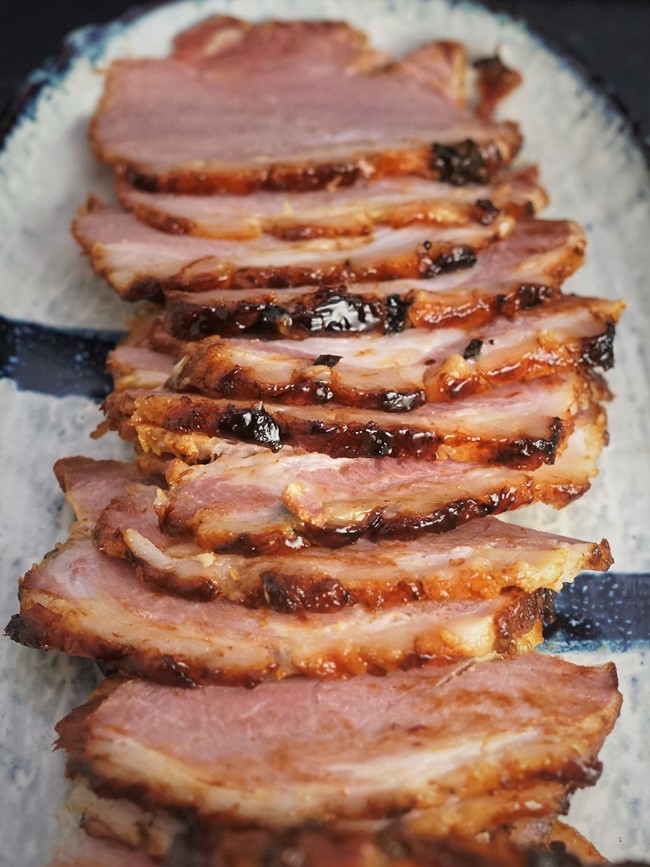
But there’s nothing difficult at all about making this British classic.
So there’s no reason you can’t enjoy easy Glazed Gammon all year round.
- Ready to cook? Jump to Recipe
- Want step-by-step images? Read on.
EASY GLAZED GAMMON
To get the very best Glazed Gammon you need to start with a good quality gammon joint.
For me, that means local and free-range.
I bought the gammon you see here from The Good Life Meat Company who specialize in traditionally reared, rare breed meats.
From slow grown pigs, this magnificent gammon had a good layer of fat that helped to keep it moist during cooking.
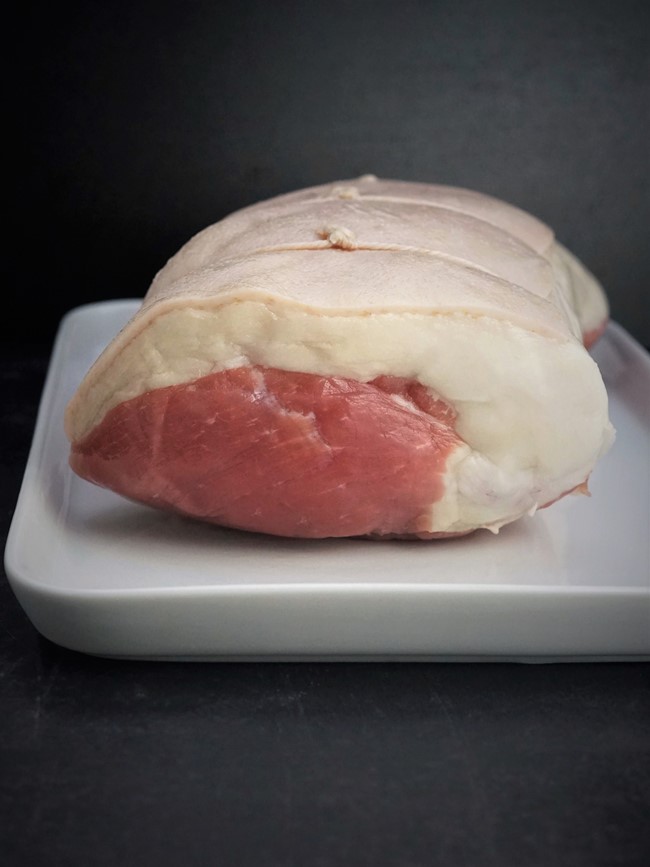
My gammon wasn’t overly salty, but some can be. So, just in case, here’s a tip to make it less so. Simply put your gammon in a large saucepan, cover with boiling water from a kettle, simmer for five minutes, then pour off the water.
Now you can start the recipe proper: cover it with fresh boiling water plus a few vegetables for flavour.
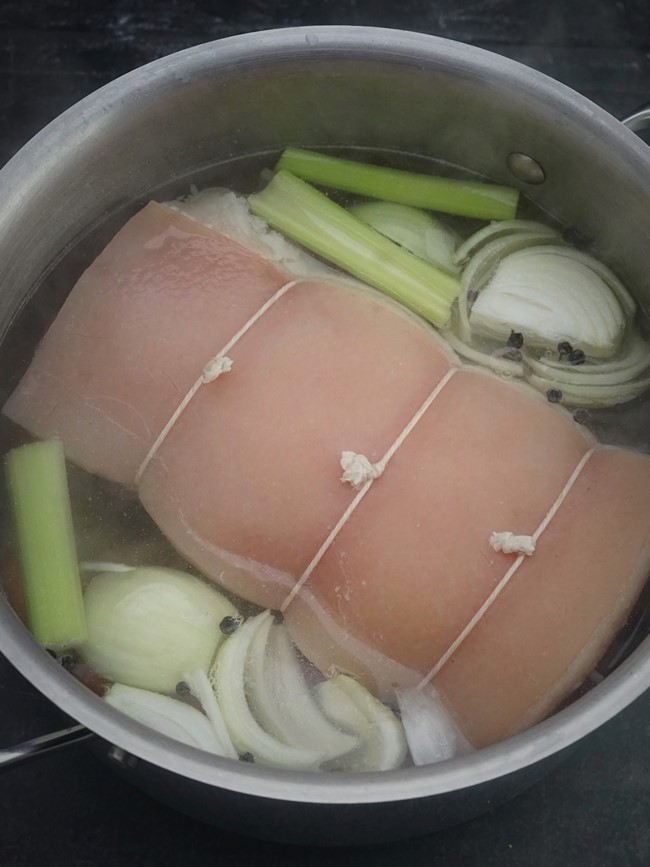
I popped into the pot onion, celery, carrot and peppercorns. Leek would be good too. You then simmer the gammon until cooked through. The time this takes will depend largely on the weight of the joint.
Allow 20 minutes per 500 grams, or 4 minutes per 100 grams, whichever is the easiest for you to work out. For example, my gammon weighed 1.6 kilogrammes, so that’s 1600 grams divided by 100 grams (i.e. 16) x 4 minutes = 64 minutes.
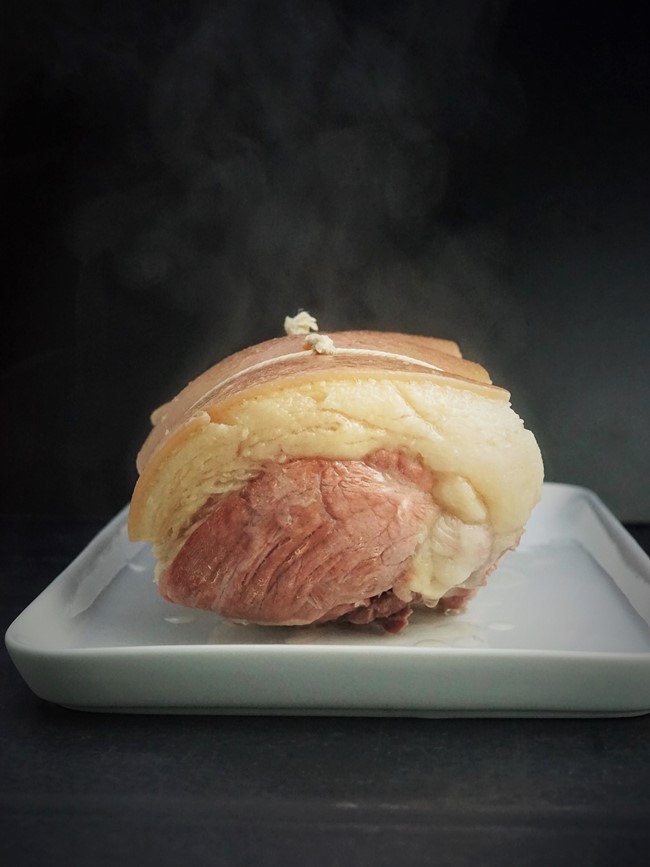
The only slight alteration you need to make to the formula is if you have a particularly thick gammon. In that case add another 20 minutes to the total cooking time.
When the time is up, take the gammon out of the cooking liquor and leave it to cool a little while you make the glaze. You should preheat the oven at this point too.
GLAZING THE GAMMON
There are also sorts of glazes you can brush over the gammon or ham. All should include a sweet, syrupy element such as honey, maple syrup, redcurrant jelly or marmalade. To that you can add flavourings like citrus juice or spices (e.g. cinnamon, cloves).
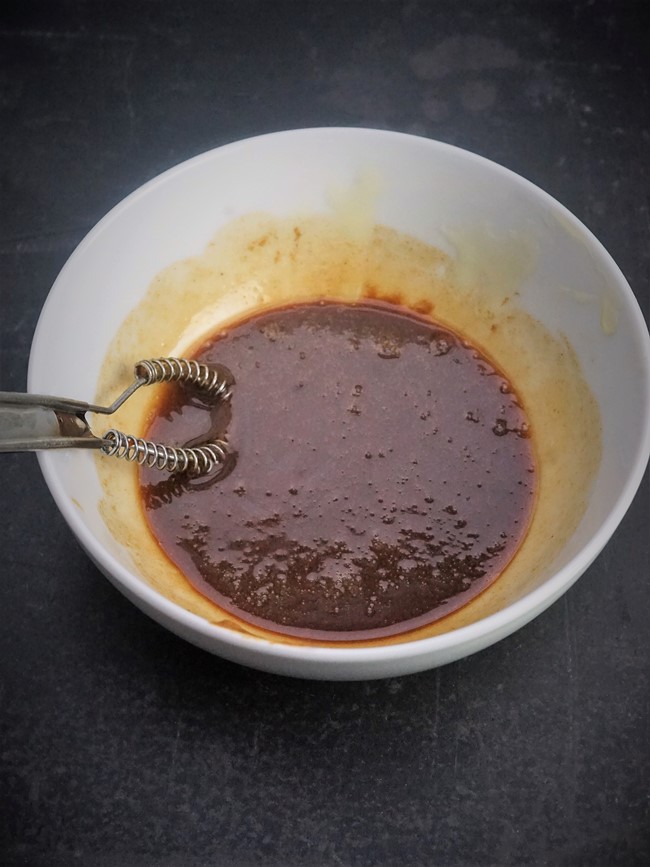
Here I made a honey and French mustard glaze, simply by mixing together a few tablespoons of each.
Before brushing on the glaze, you should first peel off the skin of the cooling gammon. Leave on a layer of fat though: this will keep the meat moist as it roasts.
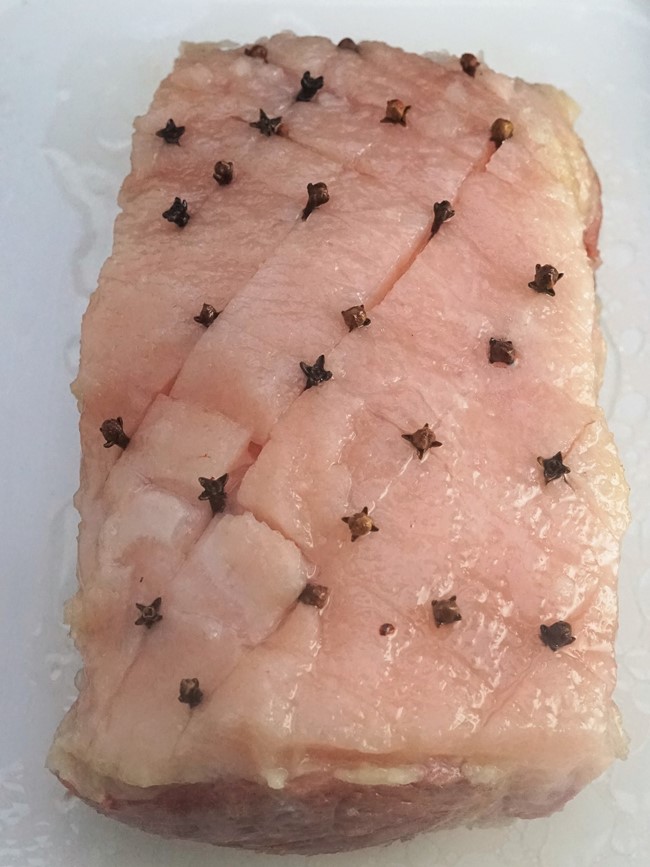
Next, take a sharp knife and make crisscross patterns all over the fat. Try not to cut down into the meat. If you like, add the traditional garnish of whole cloves: push them into the Xs at the intersection of the cuts.
Finally, brush the glaze all over the top and sides of the gammon, then put in the oven.
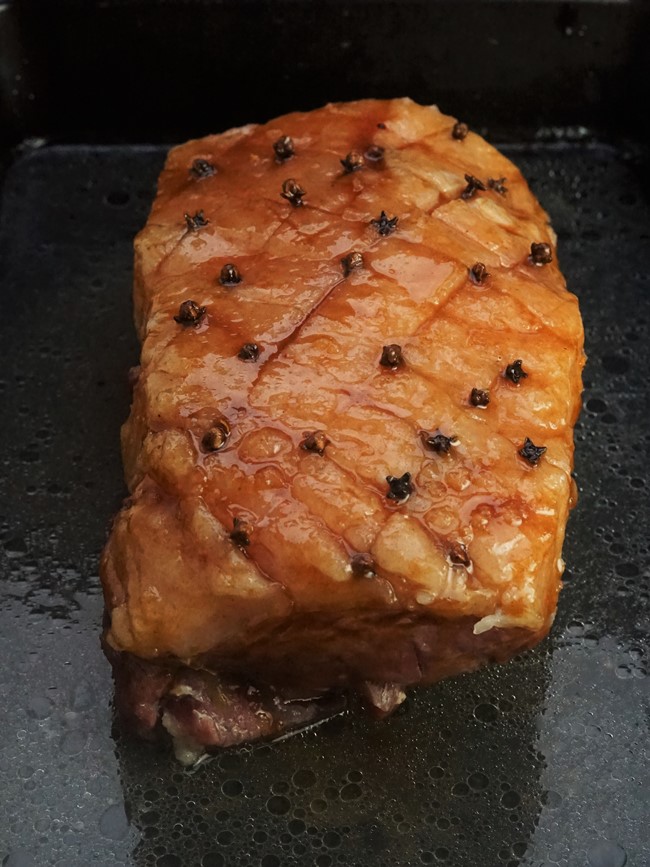
As the ham is already cooked, we’re only rendering down the fat layer and creating that attractive, shiny glaze.
This should take no more than thirty minutes. If you think the glaze is darkening too quickly, reduce the oven temperature.
SERVING & STORING
At the end of the cooking time, you should have a beautifully caramelized Glazed Gammon.
Isn’t that worth the small amount of effort?
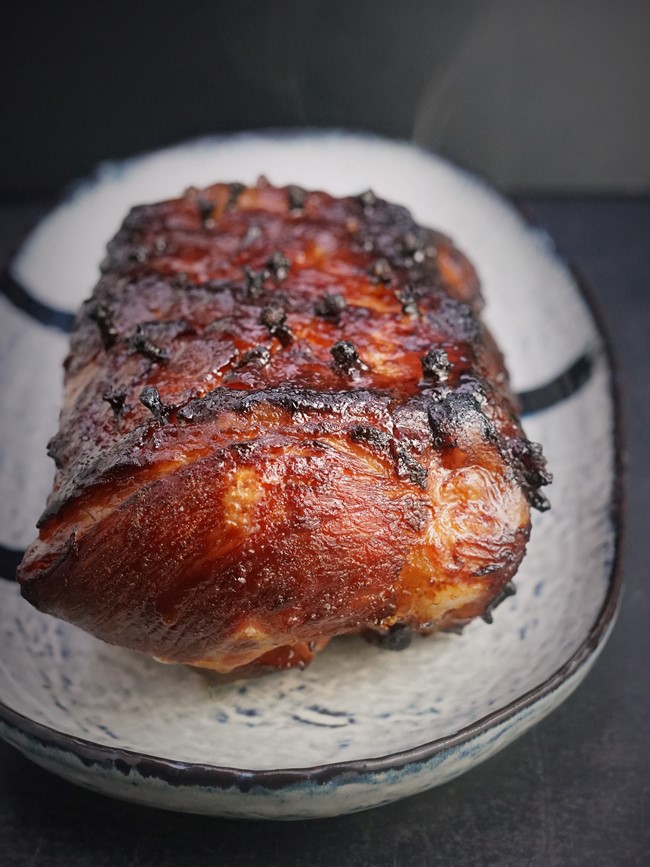
If you want to serve the gammon hot, perhaps with boiled potatoes, vegetables and a parsley sauce, slice away and eat.
But I prefer it cold, so leave until completely cold before slicing.
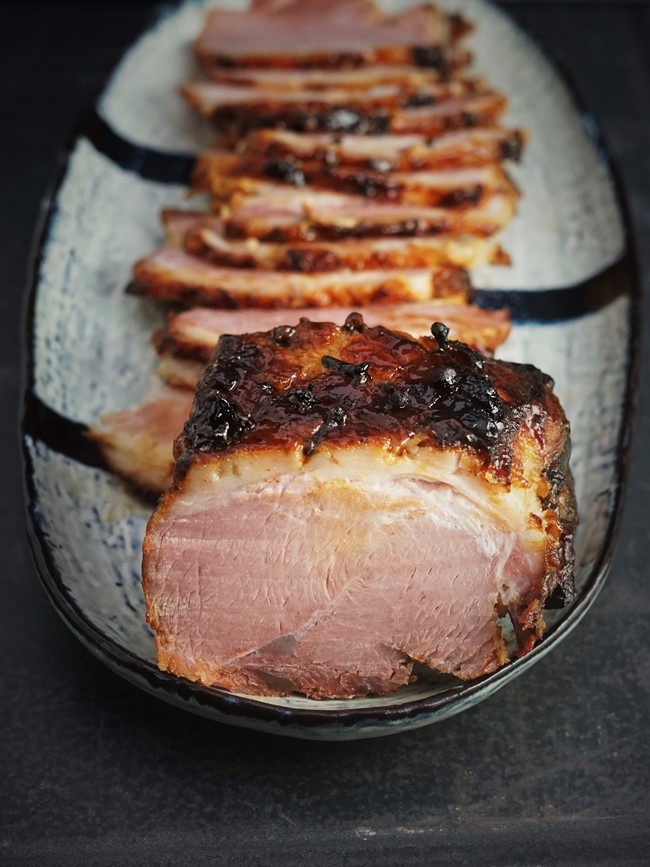
I love to eat the ham alongside other meats and cheeses plus chutneys and pickles like Smoky Tomato Chilli Chutney and Quick Pickled Cucumber.
But a current Boxing Day tradition in our house is to have a simple dinner of ham, egg and chips. So this year I’ll be saving some of my Glazed Gammon for that!
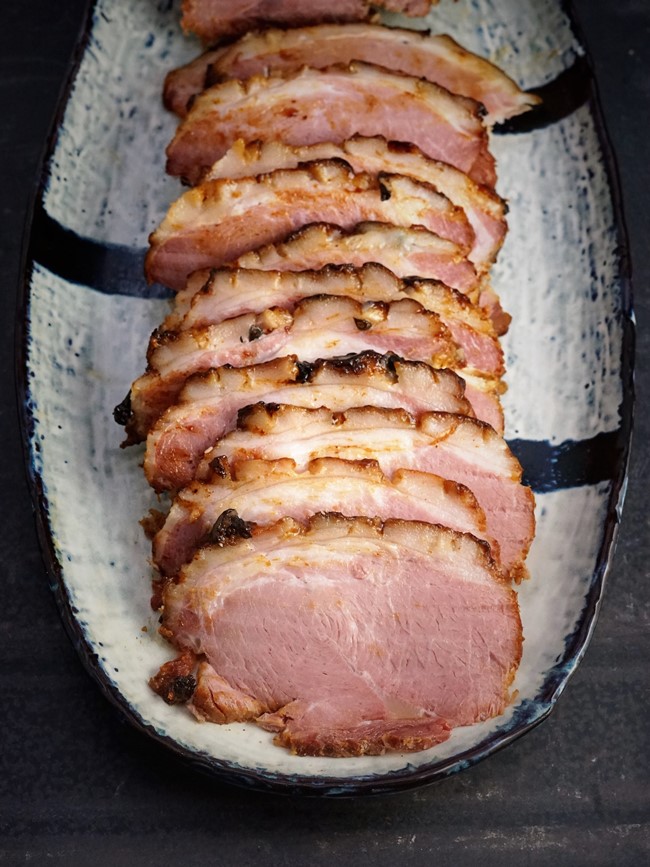
Of course, like any other ham, this one will be great in sandwiches or in salads too.
I keep the cooked gammon in the fridge for up to three days. If you don’t think you’ll use it within that time then it can be successfully frozen.
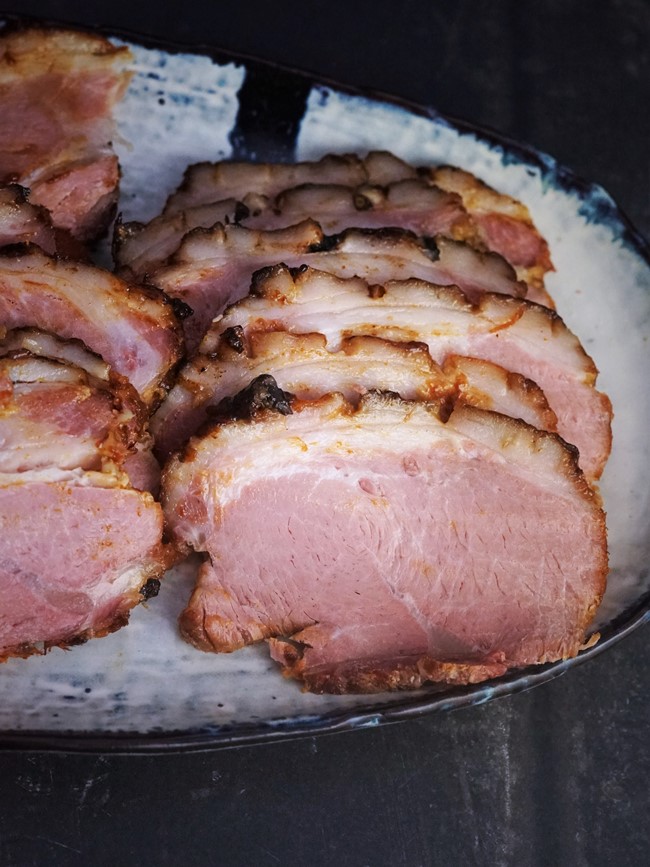
Leftover gammon can be chopped and added to omelettes, soups and loads of other dishes. For a super-easy but rather special use, try my delicious Potted Ham recipe.
I hope this post has inspired you to have a go at making this wonderful yet easy traditional British dish.
If you’ve made my Glazed Gammon, leave a comment below.
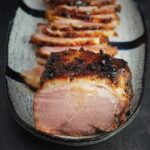
Glazed Gammon
Easy to make at home, Glazed Gammon is a real showstopper with a glossy, sweet yet tangy exterior and tender meat within.
Eat hot or cold.
Ingredients
- 1.5 - 2 kg gammon joint see Recipe Notes
- 1 onion
- 1 carrot
- 2 sticks celery
- 12 black peppercorns
- whole cloves
For the glaze
- 2 tbsp honey
- 1-2 tbsp French or English mustard
Instructions
-
Boil the gammon
Put the gammon joint in a large saucepan and cover with boiling water from a kettle.
Put on a lid and bring to a boil. Simmer for 5 minutes then pour off the water (this gets rid of some of the salt).
Cover with fresh boiling water and add the vegetables and peppercorns to the pan.
Put on a lid, bring back to a boil then lower to a simmer.
Cook for 20 minutes per 500g / 4 minutes per 100g.
Tip: if your joint is particularly thick you may wish to add 20 minutes to the total cooking time.
Take the gammon out of the pan and transfer to a roasting tin (reserve the cooking liquor for now).
-
Preheat the oven to 200 C / 180 C Fan / Gas 6.
-
Glaze the gammon
When the gammon is cool enough to handle, peel off the skin but leave behind a layer of fat 1-2 cm thick.
With a sharp knife, cut a crisscross pattern all over the fat without piercing the meat.
Push a clove into some or all of the 'X's at the intersections of the lines
Stir together the honey and 1 tablespoon of the mustard in a small bowl. Taste and add more mustard if liked.
Brush the glaze all over the gammon.
-
Roast the glazed gammon
Pour enough of the reserved cooking liquor into the roasting tin to just cover the base. (If not too salty, the remaining liquor can be used as stock for soups).
Put in the oven and bake for approximately 30 minutes or until the gammon has a shiny, sticky glaze. Turn the temperature down if darkening too quickly.
Remove from the oven and transfer the gammon to a plate or board.
-
The glazed gammon can be sliced and served hot, or left until completely cold before slicing and serving.
Store, wrapped, in the fridge for up to 3 days or can be frozen.
Recipe Notes
Make a note of the weight of the gammon at the start: you'll need this to calculate cooking time.
MORE RECIPES TO TRY

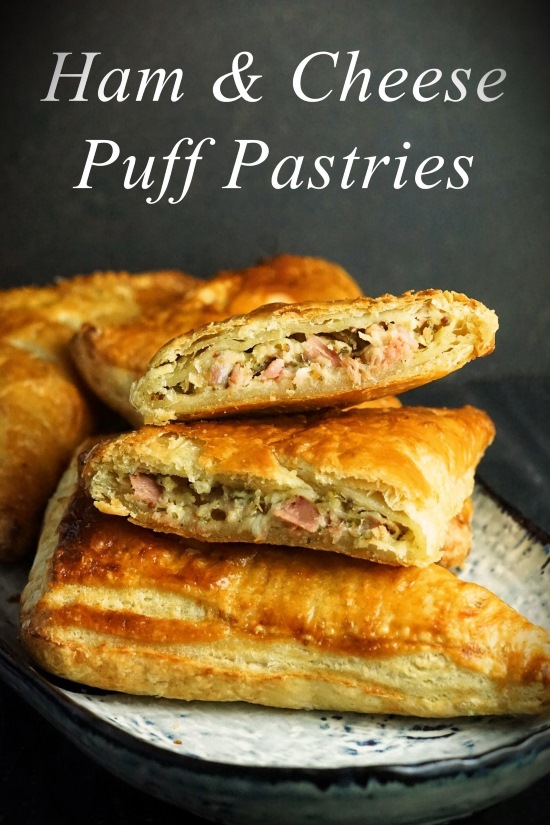
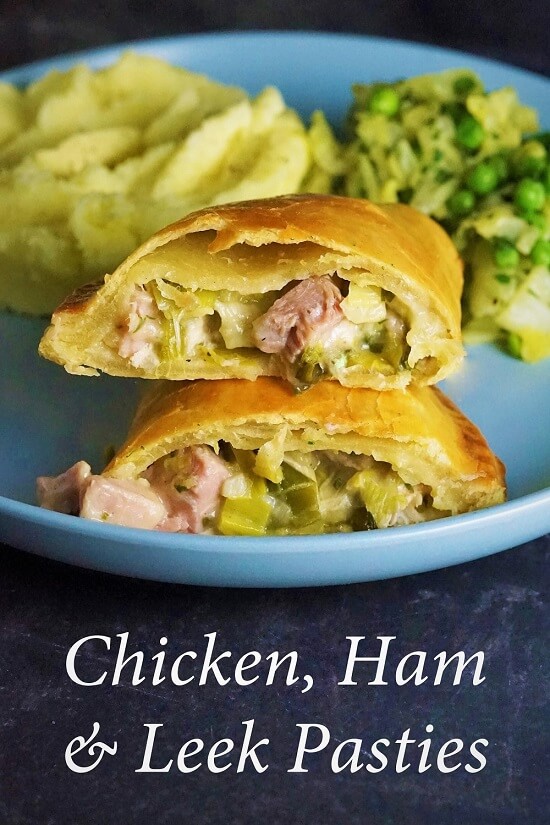
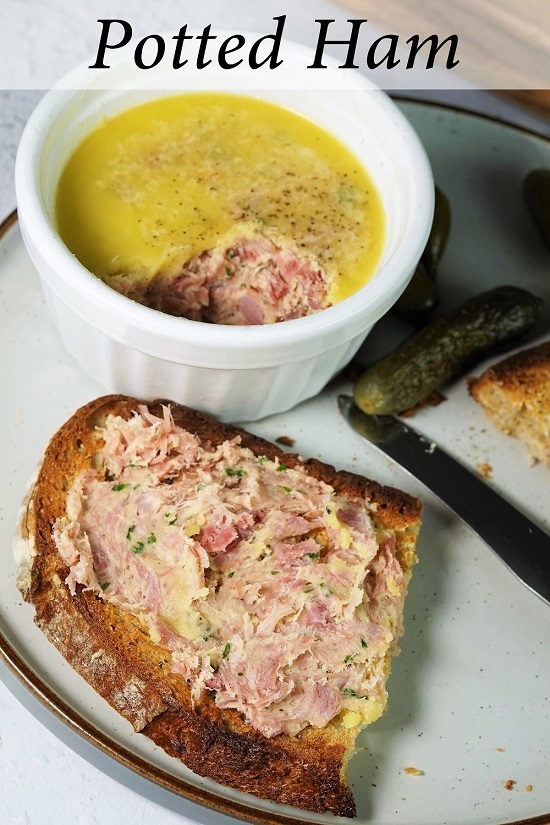
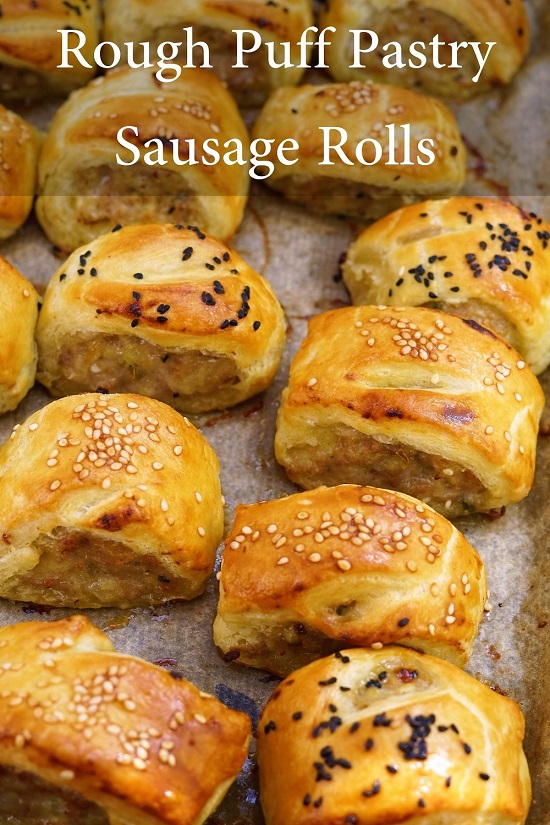
Love this recipe, your gammon looks lush and I totally approve of ham, egg and chips on Boxing Day. Have a fabulous festive season – Jenny xxx
Thank you Jenny! You have a lovely Christmas too. Lynne x